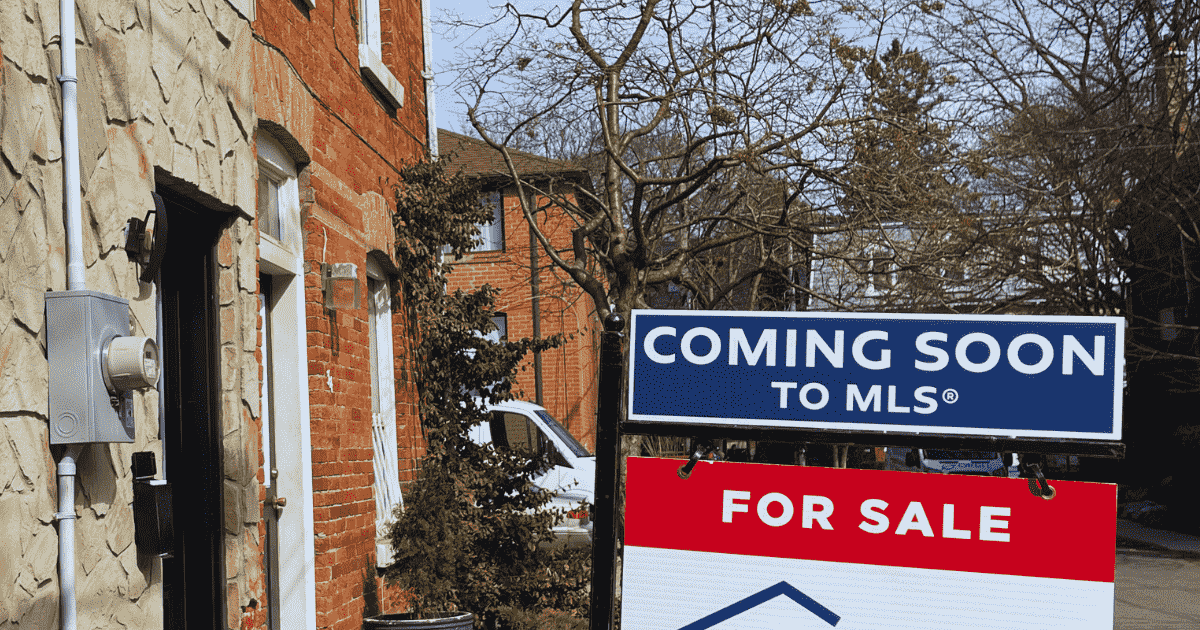Despite high carrying costs, condo investors in Vancouver and Toronto are hanging onto their properties. But, it’s often because there are few takers if they try to sell, realtors in both cities say.
Listings for investment condos in Vancouver have increased and sales have declined rapidly over the last three or four months, says Jesse Kleine, a realtor with Sutton Group-West Coast Realty in Surrey, BC.
Condo investors losing equity “don’t want the headache anymore”
With many Vancouver condo investors sitting on $100,000 to $300,000 in equity, the feeling is, “Let’s just get rid of it even if it’s worth less than it was six months ago,” Kleine says. “I just don’t want this headache anymore” of high interest rates and the potential of running out of cash to float the condo.
However, once they discover there are several virtually identical condos not selling, many investors just decide to hang on and borrow money from family.
Tim Syrianos, broker/owner at Re/Max Ultimate in Toronto, notes potential sellers are saying, “I’m not going to sell my property because people can’t buy it. I’ll just put it back onto the rental market.”
Biggest obstacle to condo buyers: Mortgage stress test
Although an October Re/Max study found 33 per cent of Canadians who want to buy or sell a home in the next 12 months will wait and see how interest rates play out, Syrianos says other factors are putting a halt on transactions.
Namely, the government’s mortgage stress test. He says it’s “the biggest obstacle to not just investors, but any person who wants to buy a condo.”
The stress test requires borrowers to qualify at a rate of 5.25 per cent or the lenders’ offer plus 2 per cent, whichever is higher.
“The majority of our realtors are talking about the stress test, and not interest rates, as being the biggest barrier to having first-time buyers or people who are renting who want to enter the market,” says Syrianos, whose brokerage services condo-heavy downtown Toronto.
Many first-time buyers can’t enter the real estate market because of the 2 per cent stress test threshold, says Syrianos, who suggests it should be lowered to 1 per cent.
Syrianos, a former president of the Toronto Regional Real Estate Board, says condo inventory is steadily increasing but if changes were made to the stress test “we would definitely see absorption of these condos.”
Investors holding out but for how much longer?
Earlier this year, Statistics Canada released data from 2020 that found 36.2 per cent of condominium apartments in BC and 41.9 per cent in Ontario are used as investments by owners.
Some Vancouver investors have told Kleine they have enough money to float their negative cash flow condos for a few more months but will then have to find more money as they wait for high interest rates to come down.
“It’s not really a rush for the door yet; people are still getting money from family and still holding on and sacrificing in hopes of the market coming back next year,” Kleine shares.
An investment condo is “supposed to be there to improve your life and if it’s not doing that, people just want to get rid of it.”
Downtown Vancouver flooded with discounted stock
Kleine says there’s “a whole whack” of generic, 15-year-old, one-bedroom condos in downtown Vancouver sitting on the market without any action. After being priced at $700,000 to $710,000 in July, they’re now asking for about $665,000. However, it’s uncertain as to whether there is a big buyer pool waiting to snatch discounted prices.
Still, vendors will make profits of $100,000 to $200,000 if they bought five or 10 years ago, he says.
Costs not covered by long-term tenants paying below-market rents
According to the Real Estate Board of Greater Vancouver, there were 5,446 detached, attached and apartment properties listed for sale in Metro Vancouver in September. This was 28.4 per cent more than in the same period a year earlier.
“The catch-22 is many condo investors have tenants locked in who are paying below-market rents”, Kleine says. They’re paying about $2,200 per month when the market’s closer to $3,200 and much more aligned with owners’ expenses today – mortgage costs, property taxes, insurance and maintenance are in the $3,000 range.
“Any investor buying property always wants it either owner-occupied or vacant so they can rent it at the new market rent,” he says. “The only person that would buy this property now is an owner-occupier who can actually give notice to have the tenant removed. So, it narrows the pool of buyers quite a bit.”
Slower condo markets in the country’s largest centres
Condo sales from January to August 31 declined by 17.1 per cent in the Greater Vancouver Area, with 10,075 transactions compared to 12,159 transactions in 2022, according to Re/Max.
In the GTA, condo sales in the same period declined by 10.8 per cent, with 18,263 transactions, compared with 20,948 in 2022.
“Since interest rates have gone from their lowest ever to generational highs, it’s no surprise the condo markets in Toronto and Vancouver have slowed,” says Shaun Cathcart, senior economist at the Canadian Real Estate Association.
Key differences in inventories, sales, prices and new supply
However, there are differences between the two cities: inventories are not as high in Vancouver, condos are still selling quite a bit faster, and prices did not dip as much and have recovered better in Vancouver, he says.
Another big difference is in new supply. “Toronto and Vancouver condo completions were about the same about 20 months ago, according to CMHC data,” Cathcart says. But, Vancouver completions are at an eight-year low while Toronto completions “took off and are setting records”.
Mortgage arrears: Best distress measure
Cathcart says that mortgage arrears, which he describes as perhaps the best measure of distress in the housing market, are at 0.15 per cent – barely more than the all-time low of 0.14 per cent about 18 months ago.
Condo investors are mostly pushing higher carrying costs onto tenants “which is why rents are going absolutely bananas,” Cathcart points out. “There’s little evidence at this point that (condos) are flooding the market.”
Danny Kucharsky is a contributing writer for REM.















